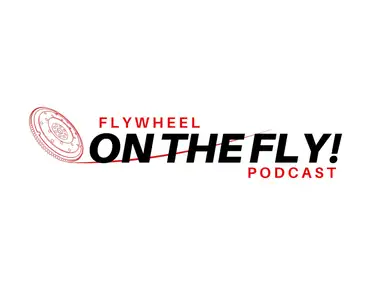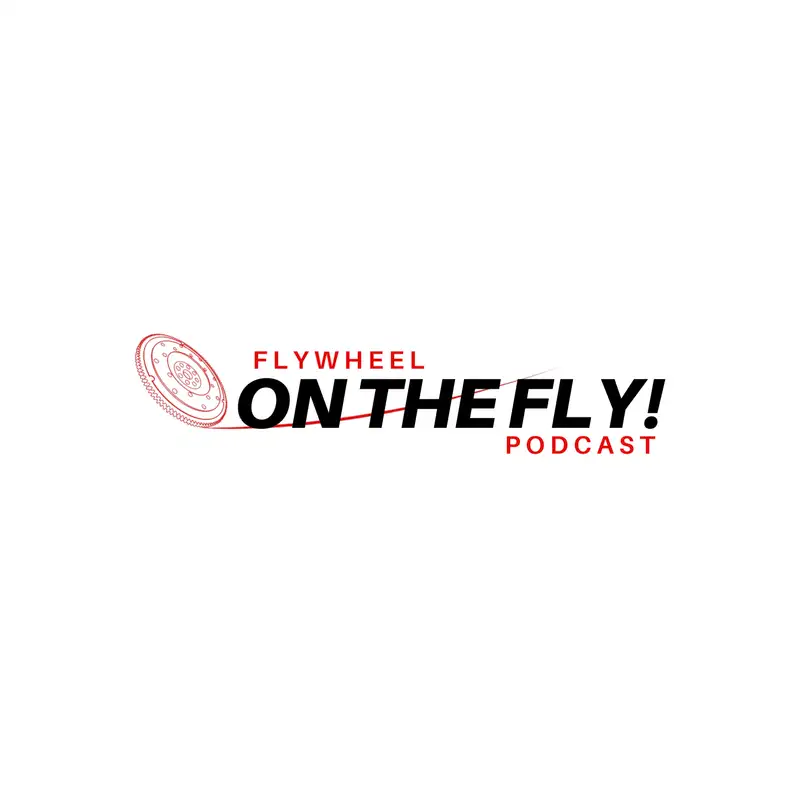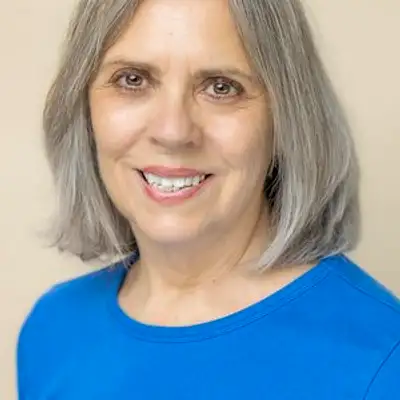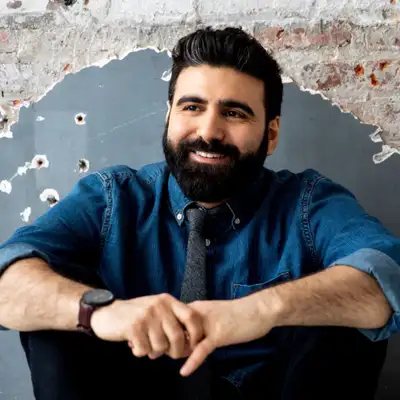I once heard money isn't the objective. That's the scorecard. That tells you that your idea, your service, your product is being accepted by the marketplace. And so, he goes, if you believe in your product and you're delivering something that has value, the money will come. But if you just go out there for the money, you're it's not going to work. You have to be focused on the customer and deliver something of value. A coworker of mine used to say that profit is the result of successfully satisfying your customers' needs. And it really is true.
Joan Kaup:To date, Flywheel has coordinated 5,242 coaching and consulting hours with entrepreneurs dedicated to social impact, and that number increases every month. Today, I have the pleasure of talking with two of the Flywheel certified coaches who have given their time and talent to work closely with our selected founders of start up organizations, those that embrace the bottom double line of purpose and profit. With me is Mishawn Styles and Szydlowski. People are the company's most precious resource. And as you say, Mishawn, pivoting and zigzagging is a new norm. So tell us a little more about that and about your background, please.
Mishawn Styles:Oh, my background is very vast. I initially started in human resources and mental health, and then I just zigzagged over to human resources. And just recently, my husband and I started Styles HR to help individuals within organizations to be their best, their best selves. And it's been a joy. It's been a joy.
Joan Kaup:Well, good for you. If our listeners want to know more about StylesHR, where do they find that information?
Mishawn Styles:StylesHR.com.
Joan Kaup:Oh, that's easy enough. Thank you. Paul, once again, you are currently leading an innovative company, one that has only been around for about twenty years. You have a career of leading organizations and reorganizing companies for new growth, stability and brighter futures. Tell us more about that drive and certainty.
Paul Szydlowski:That's a good question. It comes from seeing how things could be done better. And my first entrepreneurial endeavor was in the dry cleaning business and it was after a dry cleaner screwed up my pants. I said, I could do this better. And I started a dry cleaning business and did that for fifteen years. And since then, it's just been a matter of seeing processes, opportunities, just anything that could be improved and finding better ways to do it. And I enjoy being in the thick of things. I don't want to be on the side watching things happen. So it really comes from just wanting to make things better and and taking control of that situation.
Joan Kaup:You just do it. You just go for it.
Paul Szydlowski:Yep.
Joan Kaup:Thank you. Tell us a little bit more about why you decided to be a coach for Flywheel and how you bring the strengths of your career into conversation with the founders.
Paul Szydlowski:Well, it was interesting. I was putting together working with P and G on their global alumni Convention here in Cincinnati. And I was putting together the Small Business Symposium. And while I was doing that, I was introduced to Bill Tucker. And they're saying, I think you should get involved with this. And I was looking for something that was more than just another job. I was at that point where you want to start to give back. And this just fit perfectly with that. And I got involved. I didn't know how it was going to work. I had never coached in a formal coaching setting. I worked with Peggy Zink and her team from Workforce Connection. They were actually Cincinnati Works, but they were starting this Workforce Connection. And it was just fascinating to watch it go from idea to demo day and watching the pitches, you know, over time. And and I've just stayed with it ever since.
Joan Kaup:So Bill Tucker is one of the original directors of Flywheel Social Enterprise Hub. He's the one who kind of got it up and running in that community. And he was very busy with his outreach, gathering experienced business people and qualified folks to come in as coaches. Yeah, that was his bailiwick. And I think over the years you have coached, what, a half dozen different startup companies?
Paul Szydlowski:Well, I think it's seven.
Joan Kaup:It's seven Yeah. Yeah. Excellent.
Paul Szydlowski:And I mean, a diverse, truly diverse set of businesses and ideas and people. It's been fascinating.
Joan Kaup:You mentioned demo day. So at Flywheel, we work with a founder for a series of months covering various topics that are important to a business. And then that culminates with an opportunity for them to stand up in front of an audience of interested folks. It could be their cheerleaders. It could be possible investors. It could be media. And that is what we call demo day. So that's how we get to that term. So, Mishan, how about you? How did you become a coach, and how do you integrate your your background and experience?
Mishawn Styles:Actually, it was through Michael Moore through Cincinnati Black Achievers. I was volunteering with his organization as a mentor and was also volunteering with local colleges and universities as a mentor. And he said, I think that this will be something good for you to do. And I said, Michael, I'm too busy. I can't do that. And a year later, he said, I think this is something you really should do. And I came on board and was partnering with Bill and with Paul. And I said, I I think this would be helpful. I thought that I brought a different perspective to Flywheel because my husband has started so many different concepts, small businesses. I thought that my take would be helpful to the different founders that were trying to start their companies.
Joan Kaup:You do bring a different perspective. I've had the joy of coaching with you. And I love the way you will remind the founders kinda like, just breathe. How does this make you feel? How does this fit into the big puzzle of your life in general? I mean, there's more to it than just go, go, go. It also has to fit and resonate with you as a human being. And I think that's a really important reminder when you are coaching. Tell me in your mind the difference between mentoring and coaching.
Mishawn Styles:Mentoring. Well, it's not too big of a difference. The most important thing to remember is that when you're mentoring or coaching, you're not trying to make that person be a mini me of you or to do the things that you want. When you're coaching, you're bringing forth the best of that individual to realize their best potential. Mentoring, you're coaching in a way, but you're helping that individual to navigate life. And when you're coaching, you're helping them to navigate a product, a service, something, a tangible something.
Joan Kaup:When you are coaching, what do you find yourselves repeating from one group to another? Paul, what are your key points for entrepreneurship? Or what do you find yourselves teaching?
Paul Szydlowski:You know, there are a couple of traits that every successful entrepreneur has. One of those is focus. They understand the value of time so that they're not doing everything. And third is that they act. But the focus is really probably the first thing that are the most important thing with these folks as they come in to the program because they've got these ideas. They've got these grand dreams. And a lot of times, it's just the seed of an idea and a desire to deliver this good, this service. And it's a matter of, Okay, how are we going to do that? And really helping them narrow it down to what are you focusing on? How is this going to work in the marketplace? And as you see that kind of it's an iterative process and you see them narrow it down, narrow it down, that's really probably what I spend most of my time trying to help them with. I would agree. Just sitting here listening to you, when we're working with the founders, getting them to focus. When you're talking about coaching, getting them to be open to other ideals. Not ideas, but ideals. That what you've dreamed and what you've birthed all of this time, there are other avenues and there are other aspects that I think that you should consider to make your idea better and to give you exposure to more. Because sometimes our founders can be so laser focused on what they dream that they're missing other opportunities. I have seen that.
Paul Szydlowski:A lot of Joan, you and I may have worked on it on one of the where we had to get the founder to really get outside of their own head to see the opportunity and see what was important to their potential clients and customers rather than a lot of times you go in and you want to sell. This is what we have. Look at this. And it's, well, that's not what's really important to the customer. And sometimes they're so focused on this great little widget that they have that they're not thinking, well, how does that impact? What's that mean to the customer? It is a great widget, but you need to sell why that's important to the customer. Sometimes you have to get them to get outside their own head. And that's that's a big part of it.
Joan Kaup:It's equally challenging because the founders that we work with, these organizations, they have a dual bottom line. They are both wanting to make a big difference in the world through their social impact, but they also need a few dollars. They need a few coins at the end of the day to keep things running. Talk to me about that dual bottom line, what it means to you and what it means to your coaching experience with founders?
Mishawn Styles:When I was thinking about that dual bottom line, I'm always thinking about in corporate America, what are you giving back to the community while making a profit? And I think that sometimes with the founders, there was this one founder that we were working with that was so laser focused on finances, income, making a living, being rich. And I'm thinking about what are you giving back? What are you giving back? And is there going to be balance?
Mishawn Styles:Because at some point in time, what if you're not earning that income or gaining the clients? Or what if it's just so one-sided that it no longer is that joy for you? That's a great point. I once heard one successful business person say that money isn't the objective. That's the scorecard. That tells you that your idea, your service, your product is being accepted by the marketplace. And so he goes, if you believe in your product and you're delivering something that has value, the money will come. But if you just go out there for the money, it's not going to work. You have to be focused on the customer and deliver something of value.
Paul Szydlowski:A coworker of mine used to say that profit is the result of successfully satisfying your customers' And it really is true. And what's great about Flywheel is that we're not just satisfying a customer's needs, but we're satisfying a societal need and desire as well. I shouldn't say we are. We're helping our founders do that. But that's what's so gratifying about it. And it is really truly doing well by doing good. And you've got to have the proper mix because you can't just sit there, I'm going to do this and not think about the bottom line because you're gonna do it for six months, run out of money, and then you're gonna be back at your old job. And so there has to be a mix. And that's really where I think the coaches come in. It's keeping keeping that balance for them.
Mishawn Styles:For sure.
Joan Kaup:I love when you talk about anecdotes and stories. Are there other stories that come to mind? Moments working with founders or whether it was an moment for you or for the founders sitting across the desk from you that you can share with us?
Mishawn Styles:There was one founder that we were working with, not this Paul, but another Paul within Flywheel. And we we talk about founders getting out of their own way. And regardless of how much insight and coaching Paul was providing to this one founder, I kept hearing this founder say that they could not do something. They could not do this. It was always a day. And I asked Paul, I said, do you mind us pausing for just a moment? And I asked the founder, are you afraid to leave your home? It was during COVID. And the founder was afraid to leave, and that was in direct conflict with what they were wanting to do. Their role, they needed to be out and about networking with their customers, with their clients, with the population.
Mishawn Styles:But if the founder was afraid to leave home, there was no way that the business was going to move forward. The moment for me was sometimes we're so focused on doing good and moving a business forward that we are literally in our own way. We don't realize it.
Joan Kaup:That was really introspective that you could figure out just from having these conversations. And during that time, all of our coaching was done online.
Mishawn Styles:Especially during COVID, visually, we're having these conversations, these virtual meetings, and we didn't have the the benefit of working with our founders face to face. But to just pick up on the hesitancy and to see the pauses and to see the diversions and how the founder was deflecting different questions and coming up, I'm thinking, wait a minute, something's not right here. Let me just listen and pay attention. And I allowed Paul, through his leadership, to lead the conversation. And I just paid attention to what the founder was doing and what the founder was saying. And then that allowed me an opportunity to just ask the question out loud. And then the tears came. It's like, okay, we're dealing with something else here. It's not about starting the business. It's not about growing the business. It's about you receiving the support that you need so that you can be healthy for your business. Mhmm. And as a founder, if you're not healthy for your business, when we're talking about that double bottom line, you're not going to be healthy for the society. You're going to turn bitter. And your customers are going to see that.
Joan Kaup:They will know.
Mishawn Styles:They will know. And then everything that you fought so hard to grow, to develop, to cultivate is going to be for naught because you didn't take care of yourself.
Joan Kaup:Good point.
Mishawn Styles:And it became a bitter love for this company that I'm trying to birth. And the founder at that time stepped back and put their dreams on pause for a moment.
Joan Kaup:Brilliant. And you also remind me. When we coach, we coach in a team of two or three, which allows the coaches to do active listening. I think it's a critical part of coaching. So there may be one conversation where you're taking the lead of asking, exploring, directing, and I have the luxury of observing and actively listening and vice versa. And I think that's a real strength of coaching with teams as we do at Flywheel. Paul, do you have an story that you want to share?
Paul Szydlowski:You know, it's interesting. Mine is really simple. With my first team and it was again with Peggy at Workforce Connection. And during pitch practice, I would just kind of watch as she was talking and nod and nod and kind of smile. And I thought nothing of it. And then on demo day, she gave her pitch. And during the pitch, she kept looking over and I'm just sitting there nodding. Afterwards she came up and she said, she says, you know, I didn't think I could do this. And every time I started to get nervous, I would just look over at you and you're just nodding and smiling. I was doing nothing but nodding and smiling, but I realized Peggy was accomplished and a great leader. And yet, just being able to provide that support, and I realized there's so much more. I was still in the thought of, I've got this entrepreneurial background. I'm going come in and tell them how they have to do this and do that and do this. And I realized that it is about providing support, guidance, and really being part of that support system that these founders and these entrepreneurs have. And that was when I realized I'm not there to push so much as to assist.
Joan Kaup:I think it's fun to see the names of the companies crop up. And it's it's such a joy as a flywheel coach to go, yeah, baby. I know them or that's one of ours.
Mishawn Styles:I don't intentionally go out to support the founders, but I do. And I didn't realize that I did. Because when I'm out and about in the community and may someone's name come up or their organization come up or I'm making references or referrals or advising them. Have you considered Flywheel? Have you thought about Flywheel?
Mishawn Styles:I do support and keep in contact. I just realized just sitting here, yes, I do. I get social media contacts. "Hey, Mishawn. I'm paying attention". I remember when you said this, and I didn't give myself credit for that.
Joan Kaup:Absolutely. Take credit. And and your you said you and your husband have launched a couple other innovative creative things. Is there something that you've picked up through the flywheel contacts that have been helpful in those endeavors?
Mishawn Styles:One thing that has been the benefit, I'm the extrovert, the introvert that is operating in an extroverted world. I truly am the extrovert in our marriage. My husband is extremely introverted. And from Flywheel, we speak about the pitch contest and being in networking. And that is not a strong point for either of us. It really is not. And just working through and with Flywheel and the different founders and learning the importance of the network and collaborating and getting yourself out there and putting yourself out there and being uncomfortable. That has been the greatest value that I've taken away from Flywheel. Just put yourself out there. We don't know everything. Our founders don't know everything, but it's the collective of being in the space with so many creative individuals that have different ideas and different ventures and different spaces that they're occupying in this vast ecosystem that we're all we have the pleasure of working together in. And that's what we talk about all the time, that we have to get outside of ourselves and to be uncomfortable in this extroverted space.
Joan Kaup:Yep. Well said. What about you, Paul?
Paul Szydlowski:Well, it's interesting because we spend the bulk of our time seems to be helping these entrepreneurs develop their pitch. And really, that's all about developing their business idea and their business model and putting it into a presentable form. And so we're constantly working on their pitches. And it's fascinating to watch them develop over time. But then, and you know this because in my own world, I've got this company that may need some investment. And our owners said, hey, put something together. And I'm walking down the sidewalk at Blink and I run across Joe and I say, hey, I may need to call you because I may need some pitch. Help with a pitch. I need some pitch practice. But the thing is is that shows, again, that's kind of an moment too that even though we teach this, we help these people with that, when you have to do it yourself, you need outside help. And so it really is something where we all need each other. And it's truly an ecosystem. And that's what I've taken from this that nobody knows it all. And we all need help from somewhere else. And everybody has something to give.
Joan Kaup:And it's great to have a community like Flywheel where we can find one another, reach out, support each other. I often think that entrepreneurship is not so much a discipline as it is a mindset. I find myself shopping local, supporting the independent, whether that's a restaurant or a boutique shop. Anything else you wanna offer to our listeners about your experience as a coach about Flywheel?
Mishawn Styles:I think that there will always be a need for Flywheel. When Sterling and I were first starting our first company, I wished there was a flywheel. I I just wish there was. Just as we have all of these different generational categories and groupings of people, There will always be an entrepreneur out there that is in need of the services that Flywheel provides. And that they're needing to ask. They're wanting to ask. You know, sometimes you can ask family and friends, and family and friends are not going to give you their best. And there is always going to be that intersection of an opinion. However, through the services of Flywheel, Flywheel is going to prepare you. It's going to prepare you for that great big world out there as an entrepreneur that they are. And I I just think that because of the resources and the coaches and the financial advice or the financial guidance that Flywheel provides to these entrepreneurs, that they have a better stake in the game and they have a better opportunity of their dream come into fruition than in my years past. In my years past, it was just a concept. It was just a dream. I didn't have that coach to encourage me forward or to point me in the right direction or to tell me, no. We're not gonna tell you no, but maybe now is not the best time. But Flywheel, everything that I've learned since I've been volunteering for almost five years now, wow. I wish that I would have known for myself.
Joan Kaup:Thank you. Thank you both very much for showing your time, your expertise, and the fun that we have as Flywheel coaches.
Mishawn Styles:Thank you, Joan.
Joan Kaup:Thank you, Mishawn.
Paul Szydlowski:Thank you.
Joan Kaup:Thank you, Paul.
Joan Kaup:On the Fly is produced by Joey Scorilla with music composed by Ben Hammer. Recorded at 1819 Innovation Hub in Cincinnati, Ohio, courtesy of the University of Cincinnati.



